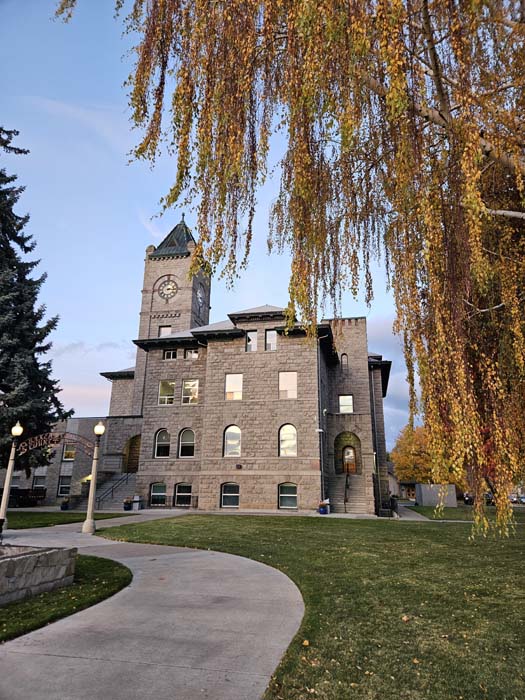Bentz: inflation could take bite from budget
Published 12:00 am Tuesday, June 3, 2008
By MIKE FERGUSON
Trending
Baker City Herald
State Rep. Cliff Bentz, an Ontario Republican who represents Baker County, said there was good news and bad news when legislative analysts produced revenue estimates last week for the House Interim Committee on Revenue that Bentz serves.
The good news: there’s probably enough money to allow state agencies to get by without the Legislature holding a special session later this year.
Trending
The bad news: the state economist and legislative revenue officer are worried that inflation, that old bugaboo that hasn’t reared its head in decades, might take a big bite out of the current biennial budget, perhaps even before the Legislature reconvenes in 2009.
andquot;Tom Potiowsky (of the Oregon Office of Economic Analysis) was very cautiousandquot; while presenting the June economic and revenue forecast to the Revenue Committee, Bentz noted.
andquot;They all seemed to be most worried about inflation. I know I’m worried about the price of fuel reverberating throughout the economy.andquot;
At the invitation of Revenue Chair Phil Barnhart, the House Committee on Energy and Environment met in conjunction with the Revenue Committee last Thursday. Bentz said he tried to get the experts assembled to testify before both committees to estimate how large a role rising fuel prices will play in the overall inflation rate and how much energy prices will continue to rise if Congress passes the andquot;Cap and Tradeandquot; plan to reduce carbon emissions, as it’s currently being debated in the U.S. Senate under the guise of andquot;America’s Climate Security Act of 2007.andquot;
That plan would allow businesses to buy and sell carbon permits to pollute. As caps become more stringent, carbon permits will become more valuable and businesses would have and even greater incentive to reduce emissions and to sell unused permits.
But the experts assembled for the hearing Thursday couldn’t answer Bentz’s questions, he said.
andquot;In all five (of the larger) cities in my district, people have great concerns about rising fuel prices,andquot; Bentz said, especially among agricultural producers buying diesel for their machinery and fertilizer for their fields.
andquot;To me, (higher fuel prices) seems like a tax,andquot; Bentz said. andquot;What is the likely effect of all that money being taken out of the economy?andquot;
All Bentz heard in response to his questions was this message, he said: andquot;The good news is that commodity prices are high or this could be much worse.andquot;
Bentz said he also has concerns if individual states, including Oregon, attempt to reduce carbon emissions if neighboring states with Idaho being the most obvious example don’t place emissions limits on businesses.
andquot;We are a small state, and we might find ourselves surrounded by other states not so aggressiveandquot; about reducing carbon emissions, Bentz said. In addition, China continues to bring on a new electric plant every week, and some of those emissions find their way across the Pacific to the West Coast.
A little more than one-third of carbon emissions come from the nation’s 3,000 electric plants. A little less than one-third come from the nation’s 200 million vehicles. The rest come from unspecified andquot;other sources.andquot;
andquot;What can a single state do to effectively reduce it?andquot; Bentz wondered. andquot;The governor is convinced that something must be done and that Oregon must take the lead. The question will be, how do we design the system, and how will permits be issued?
andquot;It’s going to be a huge debate.andquot;









